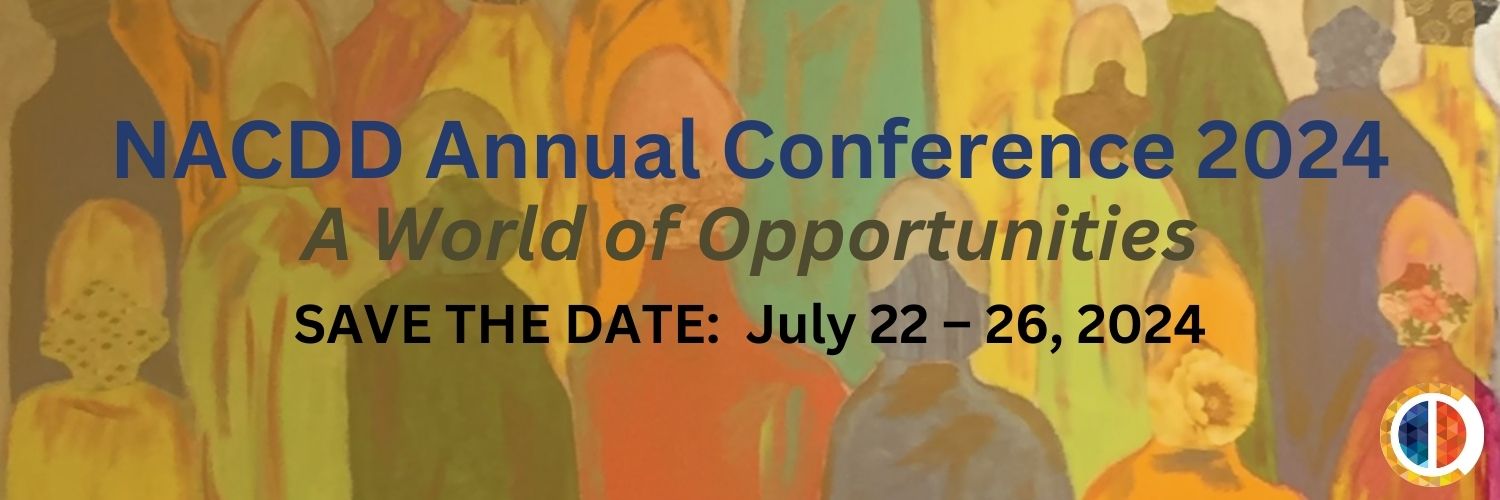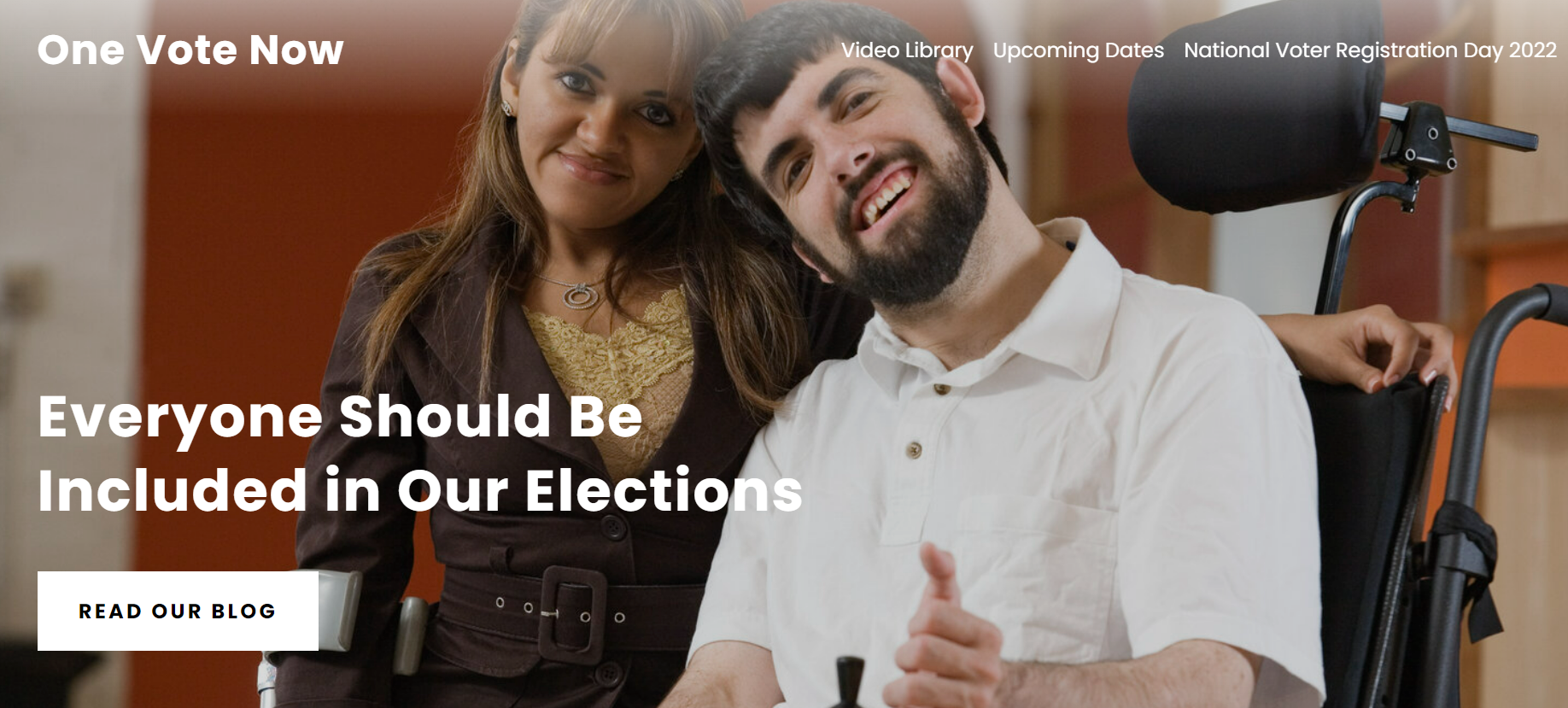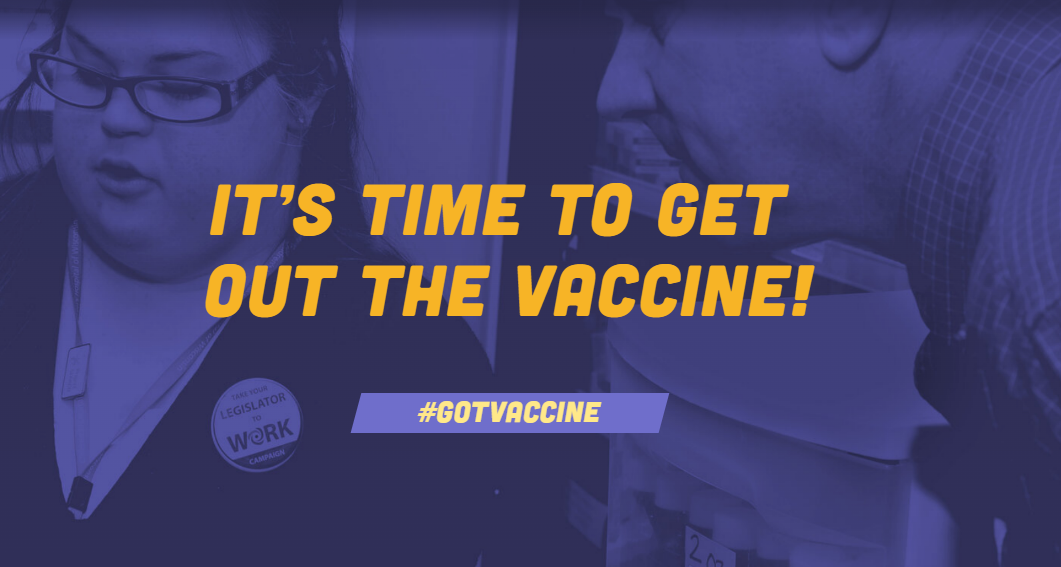The Board of Directors of the National Association of Councils on Developmental Disabilities (NACDD) is pleased to announce Jill Jacobs as NACDD’s next Executive Director. NACDD is the national membership association of the 56 Councils on Developmental Disabilities from across the United States and its territories.
Jacobs will leave her post as Commissioner of the Administration on Disabilities under the US Administration for Community Living (ACL), a Presidential appointment that she has held since early 2022. Jacobs will step into her new role at NACDD on April 21, 2024.
“Our national search brought forward a remarkable group of finalists, each with a unique vision for the future of NACDD,” said Kirsten Murphy, President of the NACDD Board of Directors. “Jill’s commitment to centering the voices of individuals with developmental disabilities and their family members stood out as singularly aligned with the collective mission of our 56 councils. We are looking forward to continuing to build NACDD’s national leadership in disability rights, policies, and practices with Jill at the helm.”
Search Committee member and Chair of the California State Council on Developmental Disabilities Wesley Witherspoon characterized the search process as long and thorough, involving representatives from 15 different state and territorial Councils. “We found the right person to fulfill the role, mission, and purpose of NACDD. Self-advocates on the Search Committee had a strong voice in choosing NACDD’s next leader, because without self-advocates, there is no Jacobs brings to NACDD more than 25 years of professional experience in policy analysis, organization management, and public service at the local, state, and federal levels. She has worked with disability justice groups, disaster relief organizations, and advocates to organize healthcare, human rights, and disaster relief initiatives in support of the most marginalized communities. Jacobs also brings extensive lived experience; she is the child of a disabled parent, is a person with a disability, herself, and parented her own children with disabilities into adulthood. While at ACL, Jacobs was known for facilitating new partnerships. Under her leadership, for example, Developmental Disabilities Councils were enlisted to assist the Center for Medicaid and Medicare Services (CMS) in learning how self-advocates and families were experiencing the implementation of CMS rules regarding the settings where people receive their home and community-based services (HCBS).
“Jill Jacobs will be an extraordinary asset to the Governors’ councils across the nation,” said Mary Sowers, Executive Director of the National Association of State Directors of Developmental Disabilities Services (NASDDDS). “Her leadership on issues related to HCBS, along with her strong commitment to person-centered work, will serve to further advance the field in this new role. NASDDDS looks forward to deepening our partnerships to help state I/DD agencies work closely with DD Councils for the benefit of people with disabilities and their families.”
Edwin Walker, former Deputy Assistant Secretary for Aging, who served alongside Jacobs at ACL, similarly characterized Jacobs as grounded in a person-centered approach. “She focuses first on the human person and their ability to live a life fully in the community.”
Jacobs’ leadership style is captured in a story told by self-advocate Bryan Dooley, Chair of the North Carolina Developmental Disabilities Council. Dooley first met Jacobs at an NACDD Conference, where he asked a question about the nationwide shortage of care providers. “I was in a personal crisis, because I had only one regular Direct Support Provider,” explained Dooley. Jacobs not only answered his question, but followed up with a meeting where she challenged Dooley to advocate in his home state. “Jill got me involved in federal efforts to address the workforce crisis,” said Dooley, “and she would not take no for an answer.” Dooley went on to meet with NC Governor Roy Cooper. “As a result of our efforts, North Carolina made historic investments into our system, though there is more work to do.”
Prior to her appointment at ACL, Jacobs was Executive Director of the ENDependence Center of Northern Virginia (ECNV), a center for independent living, where she earned a reputation as a policy advocate and innovator. She drafted and successfully advanced the passage of two Virginia state laws to uphold the civil rights of people with disabilities. She also pivoted quickly to develop new approaches to service delivery in the face of the Covid-19 pandemic.
According to Rebecca Cokley, Disability Rights Program Officer at the Ford Foundation, “I first met Jill Jacobs shortly after she arrived at ECNV and was impressed with her unwavering commitment to creating a more just world for people with disabilities and their families. I’m excited for her to bring that drive for justice to NACDD.”
Previously, Jacobs founded and served for 16 years as the CEO of Ability Unleashed, an agency for Medicaid home and community-based services. Under her leadership, Ability Unleashed provided case management services across ten counties and three military installations; provided transition services through the Money Follows the Person program and implemented an education and outreach program to prevent institutionalization of people living in the community; and successfully advocated for policy and funding to support community living. For her work advancing the rights and access of disabled military family members while she was an Army spouse, the United States Army awarded Jacobs the Dr. Mary E. Walker Medal of Honor. She is a graduate of Texas A&M at Central Texas and received social work training at Army Social Work Services at Fort Hood, Texas.



